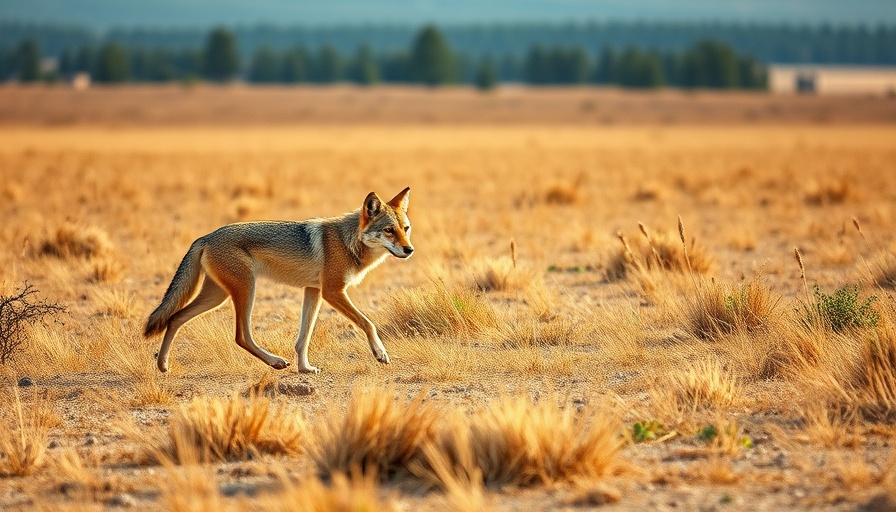
Michigan's Decision to Reinstate Year-Round Coyote Hunting
The Natural Resources Commission in Michigan has recently made a significant policy shift, reinstating a year-round coyote hunting season. This change comes after a year marked by restrictions aimed at protecting coyotes with dependent young. The urgency for this reversal can be traced back to growing public concerns over human interaction with coyotes, particularly following a biting incident involving a three-year-old girl in Alcona County. Such events have fueled ongoing debates about wildlife management in urban settings.
The Safety and Ecological Dynamics at Play
Lawmakers and state residents have expressed mounting pressure for more aggressive coyote management due to perceived threats to public safety and local agriculture. Senator Michele Hoitenga has emphasized the need for common-sense regulation, stating that unchecked coyote populations can disrupt farming, endanger pets, and affect local ecosystems. Similarly, Representative Parker Fairbairn has pointed out that coyote populations must be regulated to prevent them from negatively impacting other wildlife in Michigan.
The Reproduction Challenge of Coyotes
Coyotes are adaptable predators, capable of thriving in both urban and rural settings across all of Michigan's 83 counties. Their presence in residential areas is often attributed to abundant food sources, which can lead to increased human-coyote interactions. Importantly, a single female coyote can have up to 50 pups in her lifetime, which poses significant management challenges. According to the Michigan Department of Natural Resources, to maintain stable coyote populations, nearly 70% of their numbers would need to be reduced each year.
The Future of Hunting Regulations in Michigan
Under the reinstated regulations, while year-round hunting is encouraged, there are still restrictions to consider. Hunting coyotes in state parks and recreation areas remains prohibited from April 1st to September 14th, allowing some protective measures during denning. Landowners hold the right to manage coyote populations on their properties year-round. The commission’s decisions primarily impact hunting on public lands, continuing ongoing adjustments aimed at balancing ecological and community safety concerns moving into 2026.
Community Response
The decision to lift restrictions has garnered mixed reactions from the public. Supporters believe this action will lead to a reduction in coyote-related incidents and economic relief for farmers experiencing predation. However, wildlife advocates caution against expedited hunting practices that could disrupt ecological balance. As this discourse continues, it remains essential for Michiganders to engage with wildlife management discussions to ensure informed and sustainable practices for future generations.
 Add Row
Add Row  Add
Add 




Write A Comment